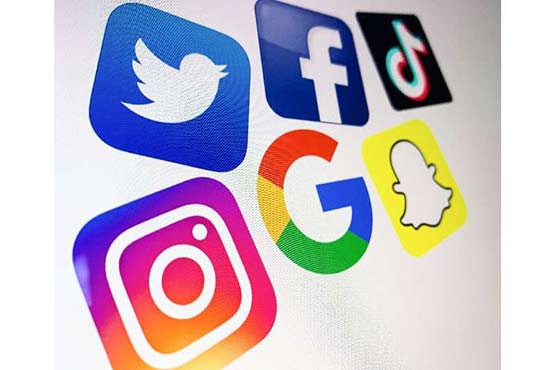Why the world is watching Australia's tussle with Big Tech

Why the world is watching Australia's tussle with Big Tech
SYDNEY (AFP) - Facebook agreed to roll back a ban on news for Australian users after the government made changes to a proposed media law that had sparked the blackout last week.
Here is a look at what the proposed rules are, why companies such as Facebook objected at first, and what it might mean for users:
What is happening?
After two decades of light-touch regulation, tech giants such as Google and Facebook are coming under increased government scrutiny.
In Australia, regulators have zeroed in on their online advertising dominance and its impact on struggling news media.
According to Australia’s competition watchdog, for every $100 spent on online advertising, Google captures $53, Facebook takes $28 and the rest is shared among others.
To level the playing field, Australia wants Google and Facebook to pay for using expensive-to-produce news content in their searches and feeds.
After much back and forth, the House of Representatives passed slightly amended versions of the proposals and the Senate is ready to do the same.
In response, Facebook decided to pull the news plug last week.
Over the following days, Australian officials and Facebook CEO Mark Zuckerberg were locked in negotiations. They eventually agreed to end the blackout after changes to the bill were secured Tuesday.
Shortly after the compromise was unveiled, Facebook announced its first proposed deal with an Australian media company, Seven West.
Why is it getting worldwide attention?
Although the rules would only apply in Australia, regulators elsewhere are looking closely at whether the system works and can be applied in other countries.
Microsoft -- which could gain market share for its Bing search engine -- has backed the proposals and explicitly called for other countries to follow Australia’s lead, arguing the tech sector needs to step up to revive independent journalism that "goes to the heart of our democratic freedoms".
European legislators have cited the Australian proposals favourably as they draft their own EU-wide digital market legislation.
Facebook’s decision to roll back the news ban comes after it received widespread criticism for the initial blackout, which also impacted some emergency response pages used to alert the public to fires, floods and other disasters.
The company quickly moved to amend that mistake, but the incident left questions about whether social media platforms should be able to unilaterally remove services that are part of crisis response and may even be considered critical infrastructure.
Why did Facebook and Google oppose it at first?
More broadly, Facebook and Google are pushing back against a slew of potential regulation worldwide that threatens to undermine business models that have allowed them to become some of the biggest and most profitable companies in the world.
Concretely, both companies say they do not have a problem paying for news -- and, in fact, they already pay some organisations for content.
Their main objection is being told how much they have to pay. That goes much further than European legislation, which encourages deals between social media and traditional media companies.
Under the Australian rules, an independent arbiter could decide if the deals reached are fair, to ensure the tech firms are not using their online advertising power to dictate terms.
But the recent changes suggest Facebook and Google would avoid this process so long as they entered into deals with outlets -- something the search giant had already gone ahead with.
Opponents have argued the new rules amount to a gift from Australia’s conservative government to allies in Rupert Murdoch’s News Corp, the country’s biggest media group, to prop up his struggling newspapers.
What does it mean for me?
World Wide Web inventor Tim Berners-Lee has warned that introducing the precedent of charging for links could open a Pandora’s Box of monetary claims that would break the internet.
"Links are fundamental to the web," he told an Australian Senate inquiry. "If this precedent were followed elsewhere, it could make the web unworkable around the world."
Facebook’s decision to block news will remain as a warning over future attempts to regulate the sector but the unwinding of the ban also shows a willingness to negotiate with lawmakers over funding the journalism carried on tech platforms.
Google Australia had made a similar threat to pull its search service in Australia, but pulled back from the brink -- instead making deals to pay several Australian media groups.

